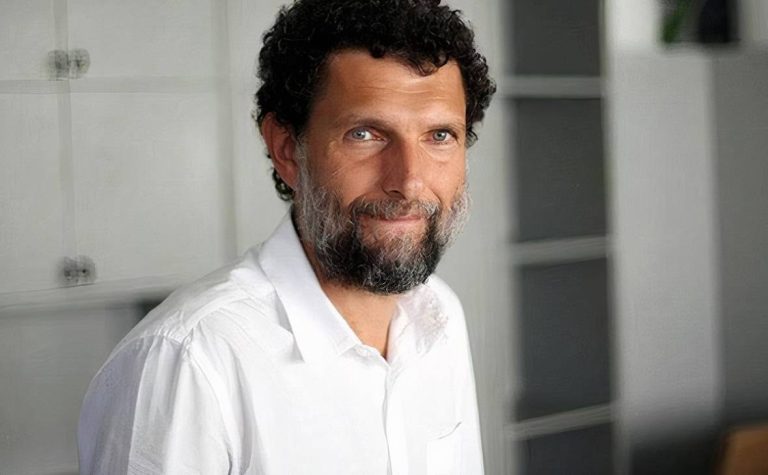In the first piece of this series, we explored how inheritance disputes in Turkey often transcend monetary concerns, becoming battles over identity, societal recognition and rooted family dynamics. Cases like that of Sevgi Sabancı highlighted the systemic inequities women face in patriarchal societies and how inheritance can reflect broader cultural issues of legitimacy and gender.
The Tatlıcı family was introduced as another example of the complexities surrounding inheritance in Turkey, with the legacy of Mehmet Salih Tatlıcı becoming a focal point for familial tension and societal scrutiny. His decision to leave the bulk of his estate to his second wife, Nurten, and their son, Uğur, sparked ongoing legal battles and intense public interest.
This second piece delves deeper into the Tatlıcı story and traces Salih’s journey from modest beginnings to immense wealth and his controversial love story with Nurten.
By examining the intricate layers of Salih’s life and legacy, we continue to uncover the societal forces at play in one of Turkey’s most high-profile inheritance disputes.
The story of Salih Tatlıcı is one of both success and controversy. His life and legacy show how family, ambition, and disputes often come with great wealth. Born in 1931 to a poor family in Diyarbakır, Salih Tatlıcı began working as an apprentice alongside his father at the very young age of 9. From selling sweets in a small shop, he went on to a real estate empire that spanned Turkey and the United States.
However, the narrative of his life took a dramatic turn with the division of his estate. Salih’s decision to allocate most of his fortune to his second wife, Nurten Tatlıcı, and their son, Uğur, ignited one of Turkey’s most contentious inheritance disputes.
Nurten Tatlıcı is central to the inheritance saga is Tatlıcı’s long-standing relationship with his second wife. Nurten and Salih Tatlıcı’s story began in the 1970s when Nurten, then 17 years old, worked as a cashier at the first pastry shop called “Tatlıcılar,” which had recently opened in Istanbul. Despite a significant age difference and societal taboos, the two formed a close bond, ultimately leading Salih to leave his first wife, Bedriye, with whom he reportedly already had a strained relationship.
The story of Salih and Bedriye deserves a place in this series. According to the sources, at just 15 years old, Salih was forced to take on the responsibilities of marriage and fatherhood, marrying his cousin Bedriye because of family pressure and tradition. This appears to be not a union of love or choice but rather a pragmatic one imposed by circumstances rather than personal desire, as in many Eastern cultures, including Turkey, the idea of keeping wealth and inheritance within the family is in tradition and religious practice.
Child marriages, like Salih’s, rob young people of their childhoods and deny them the chance to grow, learn, and make their own choices. For girls like Bedriye, they are expected to give up their dreams and take on the role of wife and mother.
Marriages between relatives add to the problem as they increase health risks for children born from these unions. In Salih Tatlıcı’s case, reportedly, out of nine children, six passed away, and only three survived. Even though these practices are often justified by culture or the desire to preserve family wealth, they ignore the well-being of those involved and can cause long-term harm.
Salih and Bedriye’s story is a clear example of how such practices limit young people’s opportunities and trap them in cycles of hardship.
Turning back to Nurten, she was born into a modest Greek Orthodox family and faced intense prejudice from both the Tatlıcı family and Turkish society at large but also from her own relatives. As a young Orthodox woman, her relationship with Salih brought scrutiny and disdain, and it is reasonable to assume that her family may have also opposed the union, feared social backlash or the challenges of interfaith marriage. However, she refused to be defined by the societal expectations that sought to sideline her. Over time, she became an integral part of Salih’s life and they committed to their shared future despite the resistance they faced.
As Salih Tatlıcı’s wealth grew, so did tensions within his family. By the 1980s, Tatlıcı had established himself as one of Turkey’s wealthiest individuals and acquired prime real estate and expanded his business ventures into sectors such as chocolate manufacturing. However, his increasing financial success coincided with growing divisions within his family.
Nurten, a self-made figure in her own right, became a target for resentment. This friction culminated in Salih’s controversial decision in 1988 to disinherit two of his sons, Ali and Ahmet, following disputes over his relationship with Nurten. While one son, Mehmet, who was relatively young at the time, was still granted a legal minimum share, this appears not to be an exception made in his favor but rather a measure to comply with Turkey’s inheritance laws. Meanwhile, Nurten and Uğur were designated as the primary heirs.
Salih Tatlıcı passed away in February 2009 while undergoing treatment for cancer in London. His death triggered an intense legal battle over his estate, pitting his first wife’s children against Nurten and Uğur. The children from the first marriage made claims that echoed familiar narratives often used to undermine women in power, particularly those like Nurten (or perhaps Sevgi Sabancı) who rise from humble beginnings and challenge traditional roles.
The legal proceedings revealed the staggering scale of Tatlıcı’s fortune, which included iconic properties such as the Salih Tatlıcı Yalı in Yeniköy, Tat Towers, and estates in Miami. Although the courts upheld the will’s validity, the first family’s legal challenges have extended the dispute, likely adding years of strain to Nurten and Uğur’s lives.
Nurten’s journey was not one of easy privilege—it was one of struggle, adaptation, and determination against great challenges. Stories like hers often show how society unfairly criticizes women for being ambitious and independent.
Salih Tatlıcı’s wish for harmony after his death may remain unfulfilled, but his decisions brought to light the biases and inequalities within his family and society. Nurten’s story, in particular, challenges conventional narratives of inheritance and legacy, reminding us that wealth is not just a matter of assets but of the identities and stories it carries.






